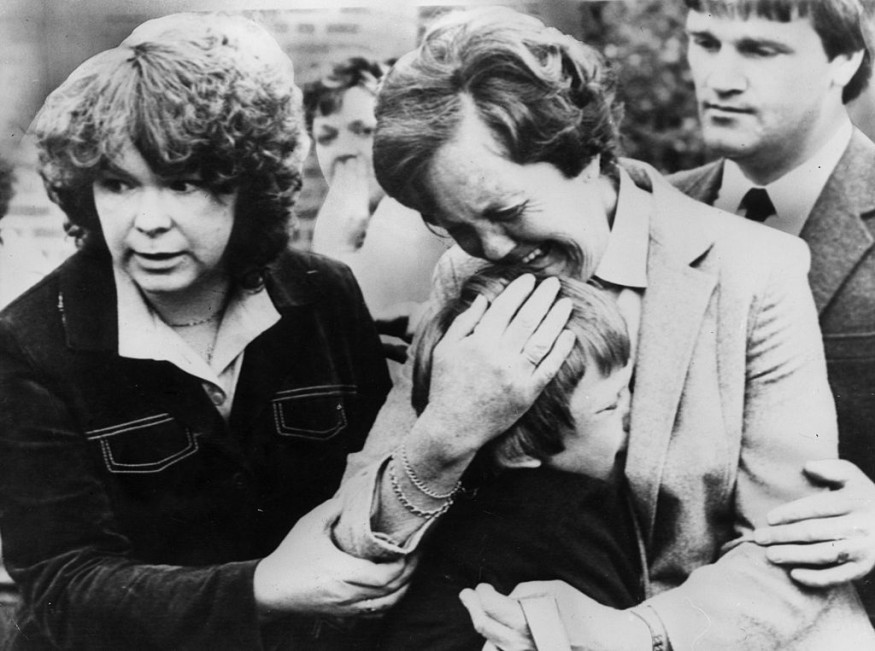There were stories that after an elderly died, the partner follow-suit after a fleeting amount of time. Some claim that this is because of a broken heart. But could someone really die of heartbreak? Perhaps. But the fact of the matter is, broken heart syndrome is real, and no one is immune to it.
You will not be shocked to find that severe mental or physical discomfort is usually triggered by broken heart syndrome. And it may just sound like a heart attack.
Here's what you'd like to know about the origins of broken heart syndrome, the signs, and its cure.

What is It?
Broken heart syndrome, first described in Japan in the 1990s, is a disorder in which the left ventricle, the largest pumping chamber of the heart, balloons out, while the heart's foundation contracts. This can be risky because it adversely affects the capacity of the heart to efficiently pump blood.
According to the American Heart Association, broken heart syndrome will set in even though you're otherwise safe, which is why knowing the triggers and signs is crucial.
What is Responsible for this Disease?
Jay Woody, MD, an emergency medicine doctor and Intuitive Health's chief medical officer, said that "broken heart syndrome" relates to the idea that emotionally stressful experiences that have a detrimental effect on the physical heart will trigger the disorder.
He told Business Insider that sadness from missing a loved one is the most prominent example of a stressor that may contribute to this disorder, but mentions that extreme feelings of fear, rage, disappointment, and other emotions can also be a cause.
A 2020 report identified an improvement after the coronavirus epidemic in people hospitalized with fractured heart syndrome, hitting 7.8 percent relative to 1.7 percent before the COVID-19 pandemic. In comparison, people with this disease have a prolonged hospital stay after the pandemic than those hospitalized before the pandemic.
Also, happy experiences may trigger broken heart syndrome, such as walking into a surprise group or winning the lottery.
Jennifer Haythe, MD, a critical care cardiologist at Columbia University Center, also told Business Insider that, regardless of the source of stress, our body secretes a significant stress hormone adrenaline volume. She said stressors can mimic a heart attack in certain cases.
What Are Its Symptoms?
Woody said that chest discomfort, decreased blood pressure, and shortness of breath can be encountered in people who have broken heart syndrome very soon after an exceptionally traumatic incident.
Other indications and indicators of Broken Heart Syndrome, according to Johns Hopkins Medicine and the American Heart Association, include:
- Sweating;
- Seizure;
- Severe injuries;
- Significant blood loss;
- Stroke;
- Low blood sugar;
- Irregular Heartbeats;
- High fever;
- Difficulty breathing (due to an asthma attack or emphysema);
- Cardiogenic shock
- Dizziness; and
- A drop in blood pressure
These signs will set in anytime after someone has been through an emotionally or physically traumatic experience from minutes to hours.
Experts advise you to promptly seek medical help if you experience any new signs in your gut or have painful chest pressure or shortness of breath.
How to Recover From Heart Break?

Although rehabilitation after a heart attack can take up to two to three months, Woody says an individual can usually heal within one to six weeks from broken heart syndrome, allowing a total recovery within one to two months.
According to Woody, management for broken heart syndrome would mostly depend on which complications the patient is having, as it will determine the seriousness of the disorder. He notes that drugs such as beta-blockers, ACE inhibitors, and diuretics will also be prescribed by doctors. In patients that display plaque formation in their artery walls, they can also offer aspirin.
Symptoms may be easily handled by medical practitioners and, he says, are typically not long-lasting. Broken heart syndrome may be dangerous, but the disease recovers quickly, suggesting that permanent symptoms can not be suffered by people with a normal healthy heart.
Check out more news and information on Medicine and Health on Science Times.
© 2026 ScienceTimes.com All rights reserved. Do not reproduce without permission. The window to the world of Science Times.











